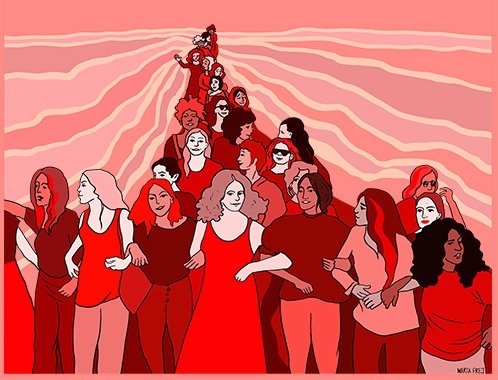Of the 1.9 billion people that currently menstruate, more than 500 million cannot fully maintain menstrual hygiene. Lack of access to pads and sanitary facilities, as well as poor knowledge, are just a few of the factors that make complete menstrual health and hygiene (MHH) impossible for so many.
MHH has a fundamental influence on lives of millions of people all over the world: a lack of it has negative health, psychosocial, education and economic effects on women. In fact, it affects nearly every aspect of women’s lives and, as a result, impacts the whole of society.
Despite long-standing aid programmes carried out all around the world, there is no clear and holistic approach to maintaining MHH. Yet it is an essential element necessary to reach an adequate standard of living in every society. Fighting period poverty is not only necessary to promote better health, but also to secure freedom and maintain the dignity of all women.
Kulczyk Foundation and Founders Pledge have published the first ever report analysing the menstrual health and hygiene sector and presenting effective funding recommendations to address period poverty.
Total current spending on period poverty worldwide is estimated to be between $10 and $100 million per year. This is a meagre amount when compared to the total donations to charitable causes, which annually are approximately $449 billion in the US alone.
Menstruation is still an embarrassing and ignored subject. It is only in the last 20 years that academic papers on period poverty have started to emerge. As a conquence, the field lacks a strong evidence base. There has not been any global reseach done which assesses the effectiveness of interventions addressing period poverty.
The authors of the report analysed 80 organisations fighting this problem and recommended eight that carry out their programmes in the most cost-effective way. Each of them performs a range of different activities and supports women in a holistic way. They all commit to increasing the evidence base for menstrual health by adding a monitoring and evaluation compotent in all their programmes.
“Access to complete menstrual health and hygiene is a basic human right. Without it, women and girls cannot pursue full lives with dignity and confidence. It is outrageous that girls in all parts of the world miss out on better education and opportunities because they were too poor to have a period. We have neglected this issue for too long,” says Dominika Kulczyk, President of the Kulczyk Foundation.
Dominika Kulczyk joins the Foundry – an international, elite group of philanthropists. It is part of Founders Pledge, which supports visionary enterpreneurs who, in parallel, lead charity work. It is a group of individual philanthropists and family foundations who have pledged to commit a certain amount of money to charity.
“I’m proud to have worked with Founders Pledge to take the first step towards understanding how we can make the biggest impact, quickly. What’s clear is the need to unite the international community on global standards for reducing period poverty, and better fund those programmes that deliver the highest impact for women and girls who every month have to choose between a meal or a sanitary pad. I invite the international community to join me and work together to end period poverty,” underlines Dominika Kulczyk.
David Goldberg, Co-Founder and CEO of Founders Pledge said,
“One of the most important steps in addressing the lack of complete Menstrual Health and Hygiene globally is finding the most effective solutions through rigorous research, and identifying the organisations implementing high-impact interventions. This report takes valuable steps in that direction and I hope it will help donors and governments tackle this issue with a clearer understanding of what barriers must be overcome.
Founders Pledge is thrilled to team up with Dominika Kulczyk and her foundation to boost the impact of philanthropists working to beat period poverty. Her work and support for women-led projects is a great example of her leadership and philanthropic abilities in Eastern Europe.
I would like to encourage philanthropists to come together and support Dominika’s movement, especially now that we have a better understanding of the effectiveness of the programmes in this space. With a unified and coordinated approach, I believe we can end period poverty.”


